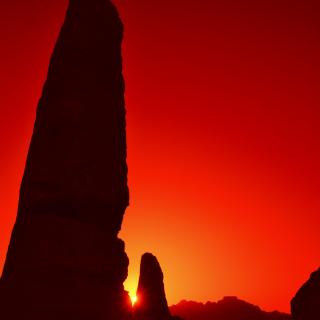Bibcode
Esteban, C.; Rísquez, C.; Rueda, C.
Referencia bibliográfica
Mediterranean Archaeology and Archaeometry, Vol. 14, No 3, pp. 99-106
Fecha de publicación:
7
2014
Número de citas
0
Número de citas referidas
0
Descripción
We present results of an archaeoastronomical study of the Iberian cave-sanctuary of La Cueva de la Lobera in Castellar (Jaén, Spain), whose foundation has been dated to the second half of the fourth century BCE. The sanctuary consists of several terraces, a cave and a rock shelter that have been artificially modified. The main axis of the cave is orient-ed along the east-west direction. A small niche at the innermost part of the cave is illumi-nated at sunset around the equinoxes through an opening located at the western edge of the cavity. We have photographically documented the evolution of the illumination pat-tern inside the cave, and have found that the shapes of the niche and the patch of light show the maximum coincidence at the temporal mid-point between the solstices, one or two days from the exact date of the astronomical equinox. Finally, we speculate about the similarity between the shape of the patch of light just before sunset and the side face of one of the most common kinds of votive figurines found in this and other contemporary Iberian sanctuaries, which represent schematically an aristocratic female image, which is sometimes assimilated with the image of a feminine deity.
Proyectos relacionados

Arqueoastronomía
Este Proyecto tiene como objetivo fundamental determinar la importancia de la astronomía como parte integrante de la cultura y de la civilización desde el Paleolítico a nuestros días. El interés del grupo se centra, en especial, en los pueblos del antiguo ámbito Mediterráneo desde el Atlántico al Oriente Medio, con una dedicación especial a España
Juan Antonio
Belmonte Avilés